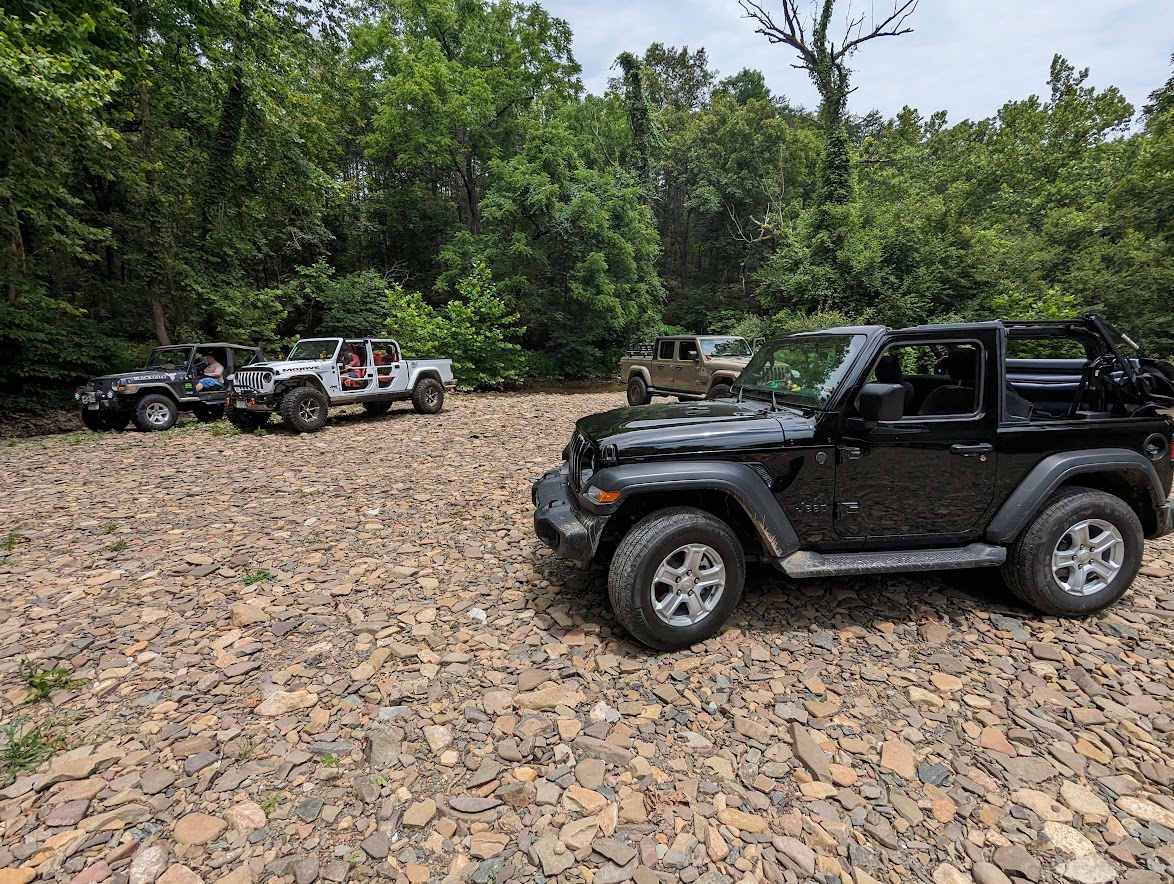As a Jeep owner, your vehicle is most likely trail-rated, perhaps desert rated, meaning you have the ability to take it in off-road conditions, ford through water, and go places a typical truck or SUV simply can’t.
Virginia has a lot to offer in the way of trails, from the beaches and marshes in Tidewater to rocky and muddy trails all along the Blue Ridge, there are a wide variety of places to take your Jeep.
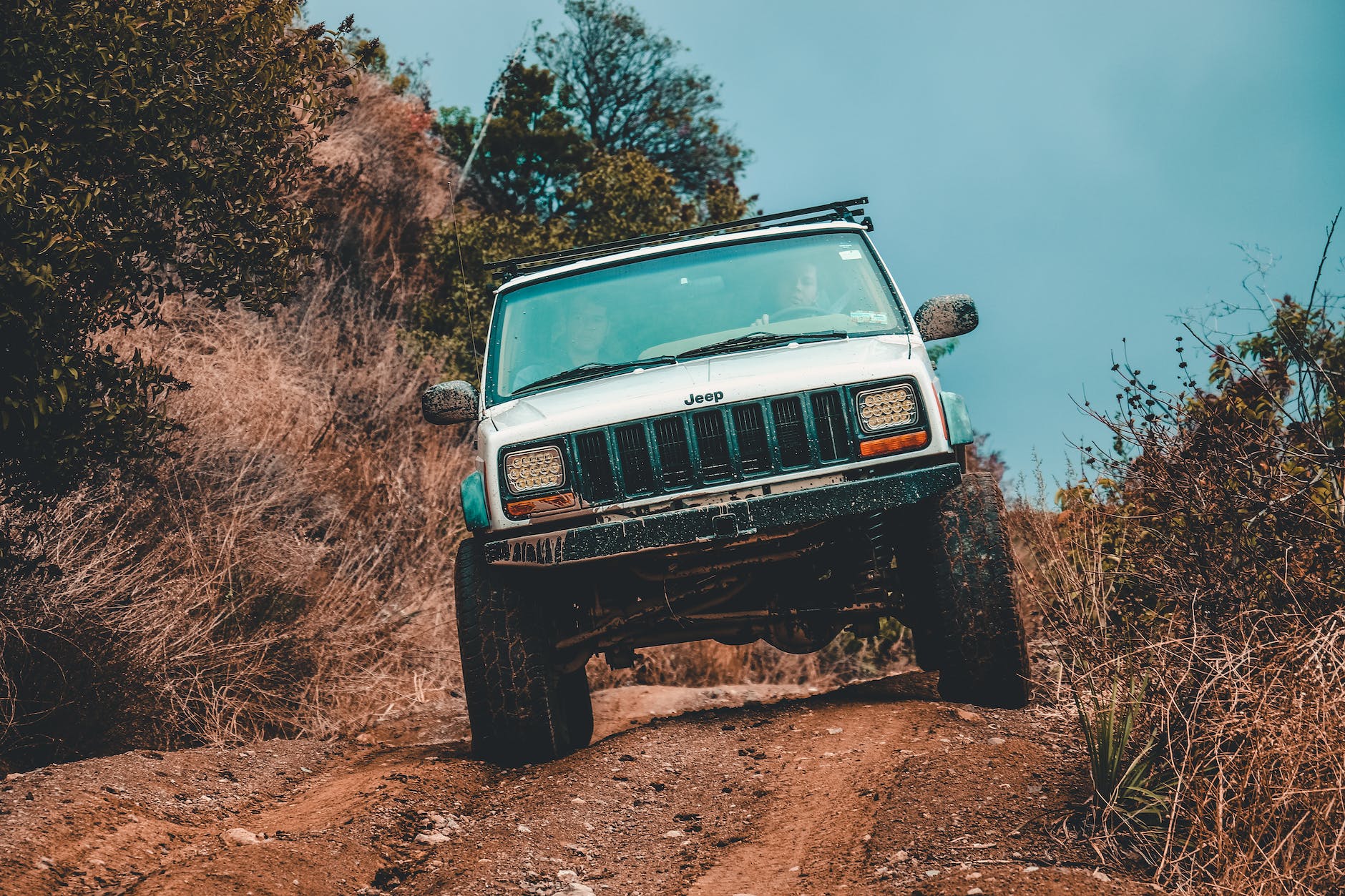
What to Bring When Off-Roading
It is highly recommended that you do not go alone, as you may need someone to help you get unstuck, for medical attention if you get into a wreck or to simply help spot you through the trails.
I also recommend having a few items to help you should you get into a bind that includes:
- A Tow Strap
- A First Aid Kit
- A Two-Way Radio
- D-Ring Shackle
- Recovery Boards
- Winch (if possible)
- Air Pressure System for Tires
- All Terrian Tires (you can run highway tires, but you will slip a lot)
- Spare Tire
- Full Tank of Gas
Sure, there is a ton of other things you can bring on the trail systems, but for the very basics, those are important.
Over the years, I have seen several highly modified rigs on the trails, like Wranglers and Gladiators as well as some other non-Jeep products like great looking Tacoma’s and 4Runners.

What I will say is that you don’t always need a lift, lockers, and large tires to hit many of these trails, in fact, if you have a stock Jeep with a trail-rated badge, you can pretty much hit up to 75% of the trails without major issues.
While they do help a great deal, our Jeeps are designed for taking them off the pavement and they excel in those environments.
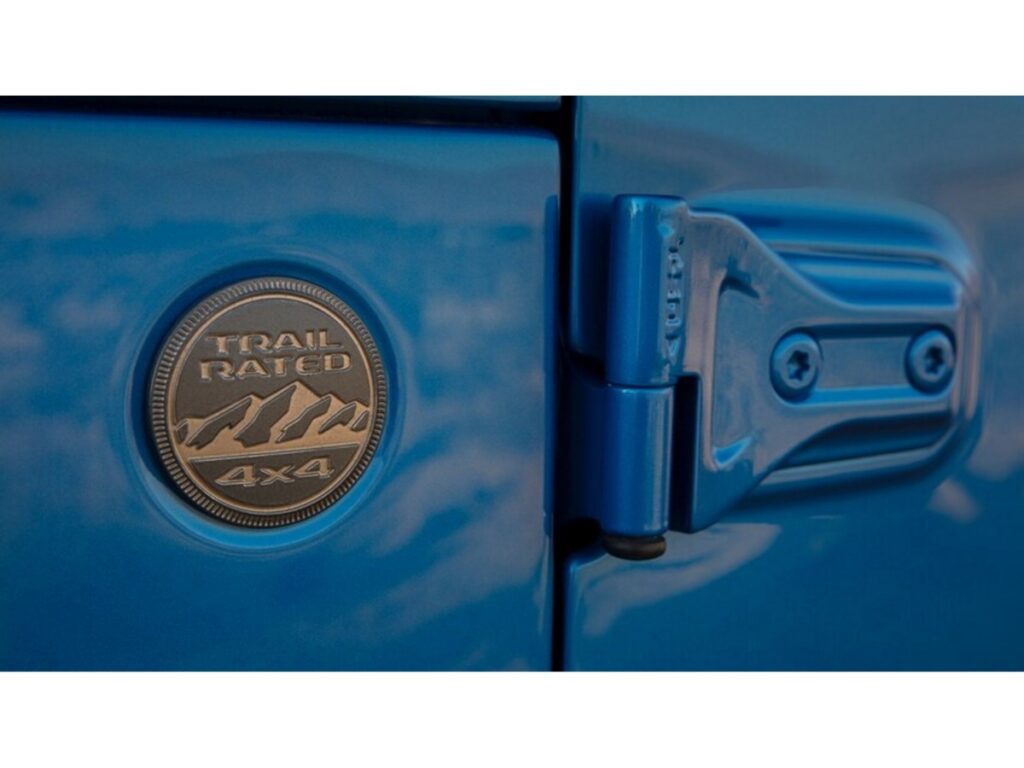
A Few Fun Places to Go
The first trail that comes to mind is Peter’s Mill Run near Woodstock, Virginia. This is the only one in Virginia that is a Jeep Badge of Honor Trail, meaning if you run it and use the Jeep Badge of Honor App, you will get a nice piece of flare for your setup.
The cost about $5 to run the trail (found at a few locations in Woodstock) and it runs about 20 miles. Most stock Jeeps can run this with a couple of rocks to climb over at one point, it’s fairly easy for a run.
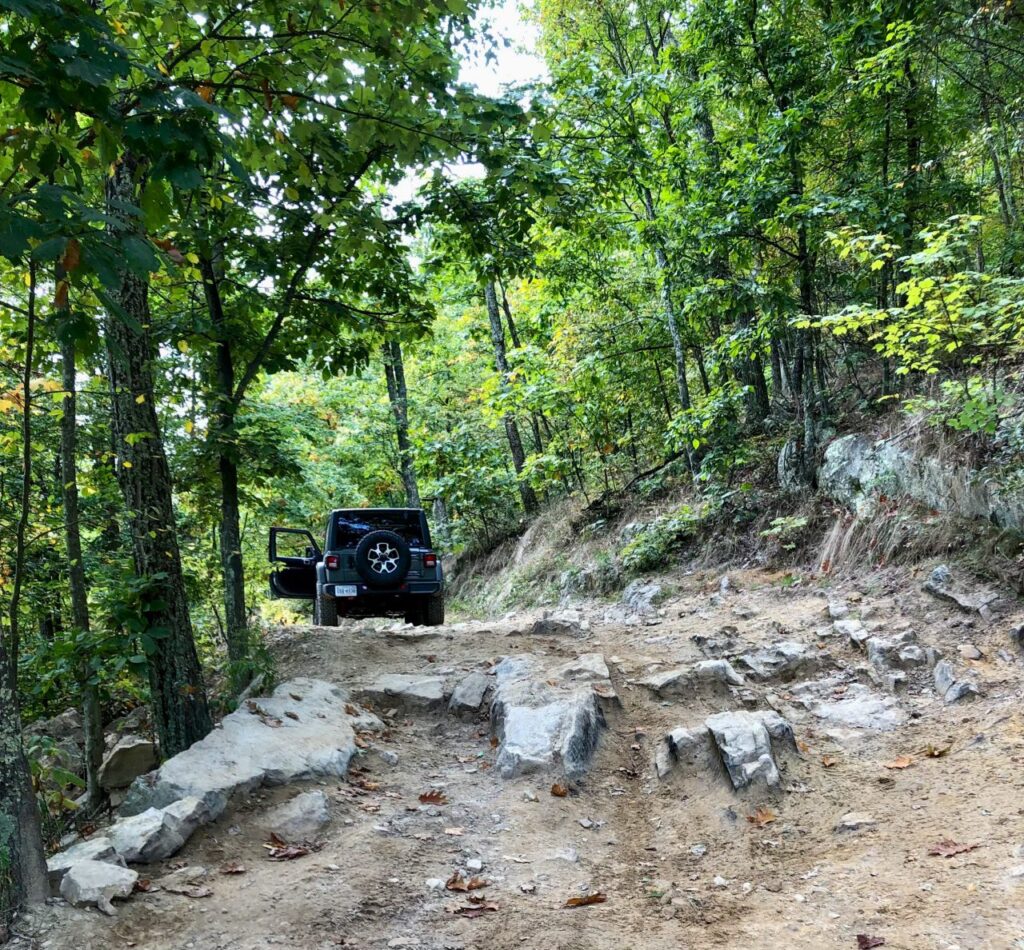
Pott’s Mountain is another great trail to seek for those with lifted Jeeps, as it’s a bit harder than Peter’s Mill Run with lots of rock crawling and some technical skills needed to conquer it. A stock rig will not make it through Potts.
Explore this 14.8-mile point-to-point trail near Paint Bank, Virginia. Generally considered a moderately challenging route.
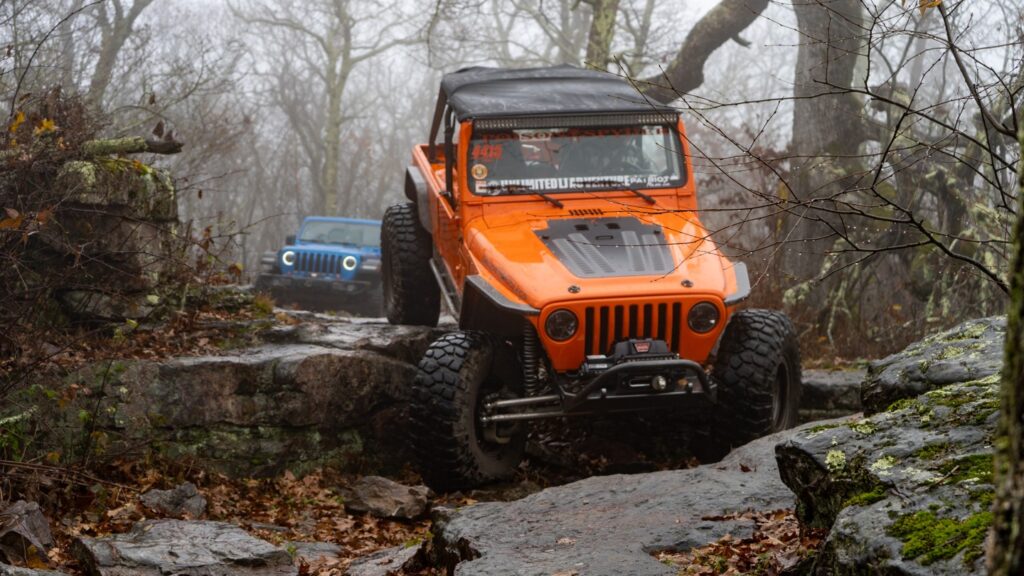
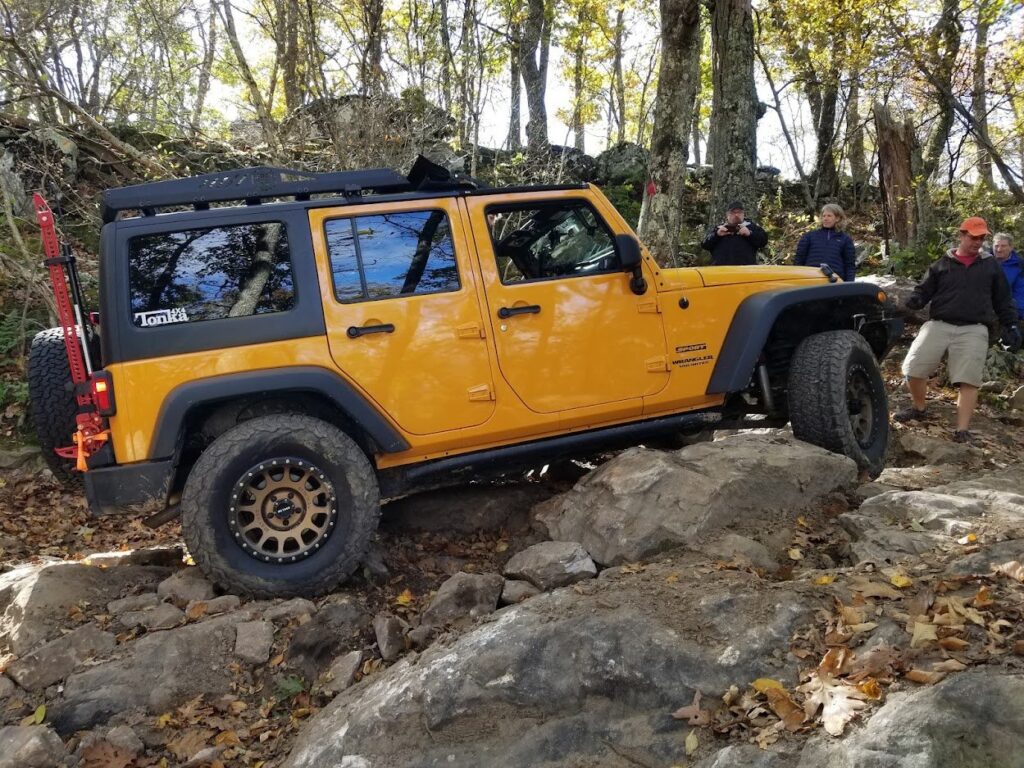
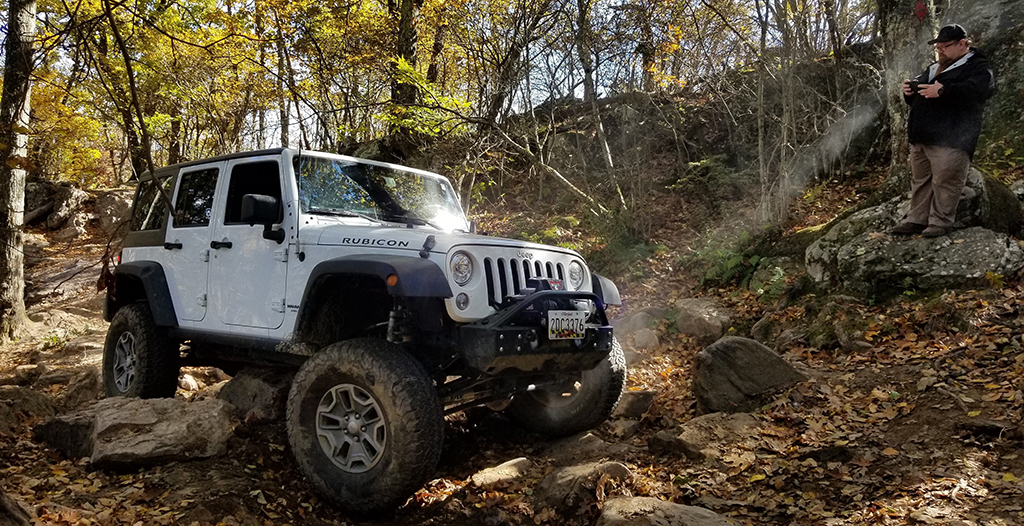
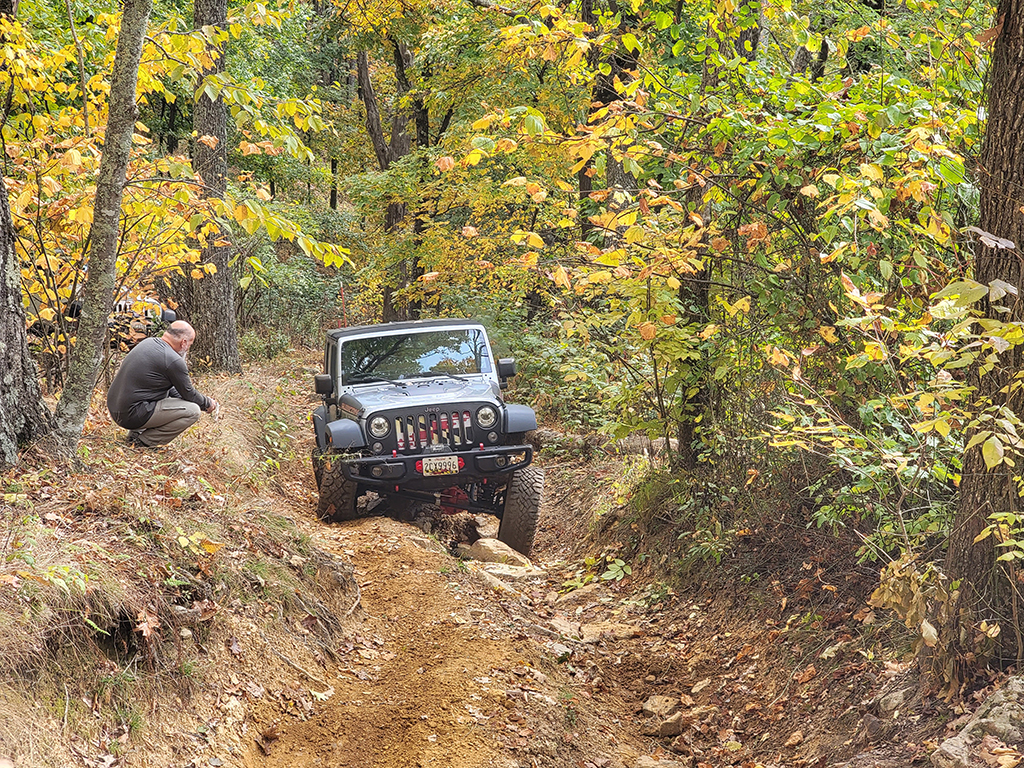
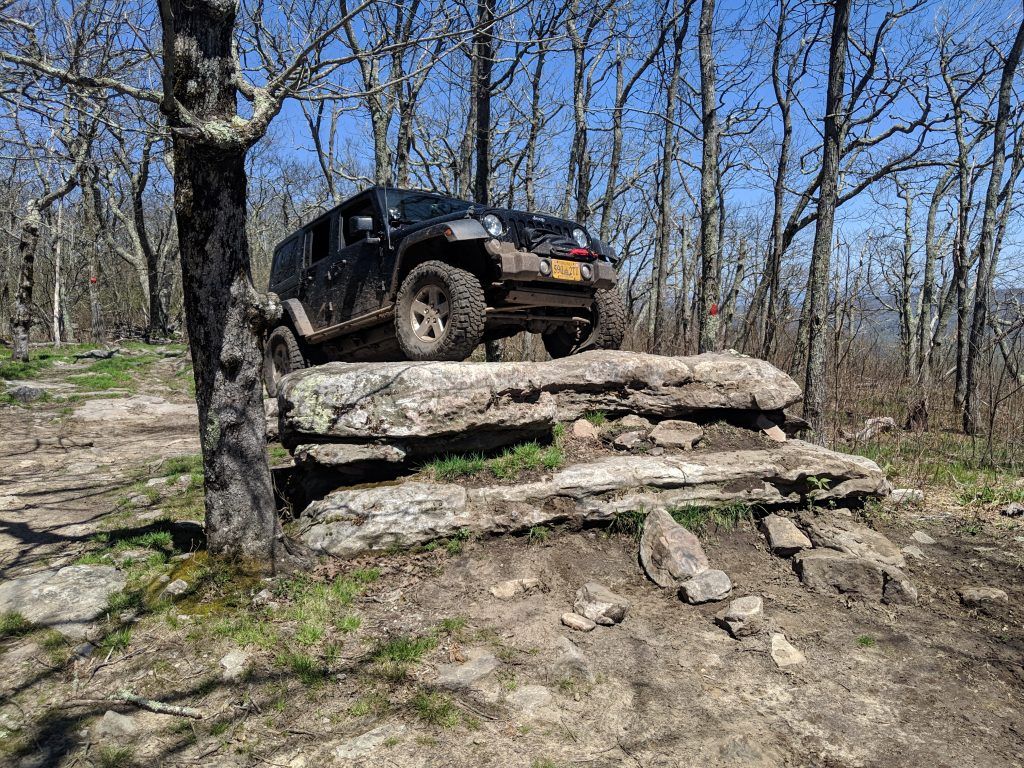
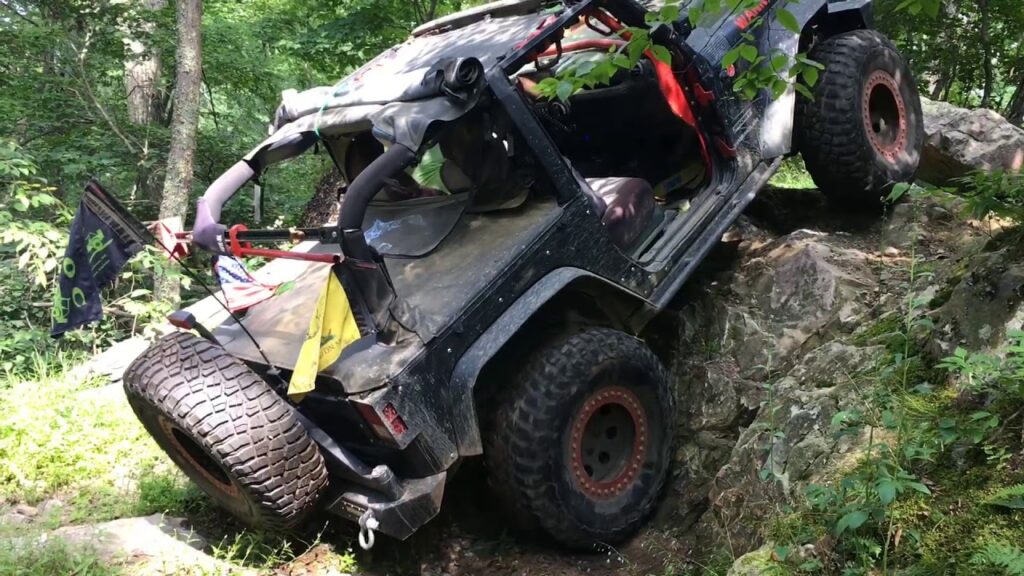
For a more stock-friendly trail in the Blue Ridge, there is Broad Run, Bald Mountain, and Bobblet’s Gap, both near Roanoke, Virginia which are fairly light and easy to manage, Broad Run crosses Craig Creek a lot and a Jeep with fording capabilities can get through it most times of the year.
Bobblet’s Gap is a fire road open from August 1st -January 1st and goes under the Blue Ridge Parkway, fun for stock Jeeps and rigs alike.
Basic Off-Roading Eduqitte
Basic off-roading etiquette is important for maintaining the environment, respecting others, and ensuring everyone’s safety while enjoying off-road activities.
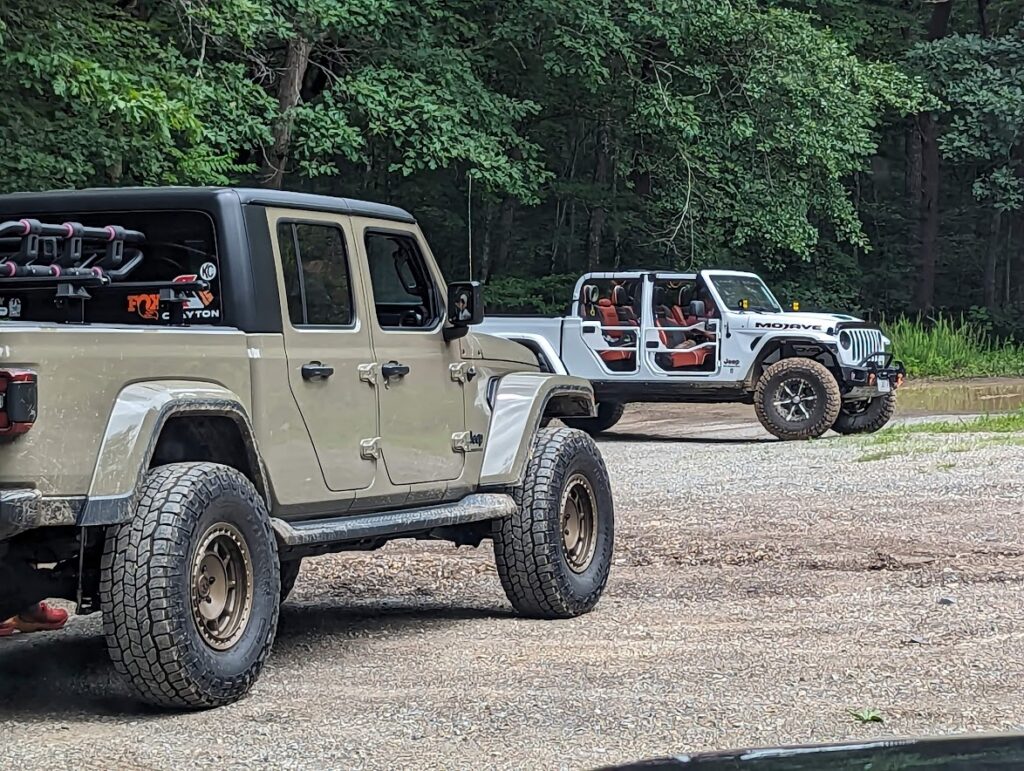
Whether you’re driving a 4×4 vehicle, a dirt bike, an ATV, or any other off-road vehicle, here are some essential tips for practicing good off-roading etiquette:
- Stay on Designated Trails: Stick to established trails and roads to prevent environmental damage. Off-roading in unauthorized areas can harm sensitive ecosystems, disrupt wildlife habitats, and cause erosion.
- Respect Private Property: Obtain permission before entering private property, and always adhere to posted signs and boundaries.
- Tread Lightly: Minimize your impact on the environment by avoiding sensitive areas, not disturbing wildlife, and staying on established trails. Practice the “Leave No Trace” principles.
- Pack Out What You Pack In: Take all your trash and belongings with you, leaving the area as you found it. Dispose of waste properly and recycle when possible.
- Follow Local Regulations: Be aware of and adhere to all local, state, and federal laws and regulations regarding off-road activities. This includes vehicle registration, trail permits, noise restrictions, and speed limits.
- Yield the Right of Way: Yield to other off-roaders, hikers, bikers, and horseback riders. Uphill traffic generally has the right of way, but always communicate and use common sense.
- Reduce Noise: Keep noise levels to a minimum, especially near residential areas and wildlife habitats. Use approved mufflers and avoid unnecessary revving of engines.
- Respect Quiet Hours: Some off-road areas may have designated quiet hours during which noisy activities are restricted. Be mindful of these times and show consideration for others.
- Travel in Groups: If possible, travel with others to enhance safety and help in case of emergencies. Communicate using radios or other means to stay connected with your group.
- Stay Informed: Check weather conditions and trail closures before heading out. Be prepared for changing conditions and have the necessary equipment, such as recovery gear and first aid supplies.
- Avoid Spooking Livestock: If you encounter livestock on trails or roads, slow down, give them space, and avoid loud noises that could startle them.
- Help Others: If you come across fellow off-roaders in need of assistance, offer help if you can do so safely. Off-road communities often thrive on mutual support.
- Practice Safe Driving: Drive at a safe and appropriate speed for the terrain and conditions. Be cautious around blind corners and crests, and always prioritize safety.
- Educate Yourself: Continuously learn about responsible off-roading practices, environmental conservation, and safety guidelines. This will help you make informed decisions and become a responsible off-roader.
By following these basic off-roading etiquette guidelines, you can help preserve natural areas, maintain a positive reputation for off-road enthusiasts, and ensure a safer and more enjoyable experience for everyone.
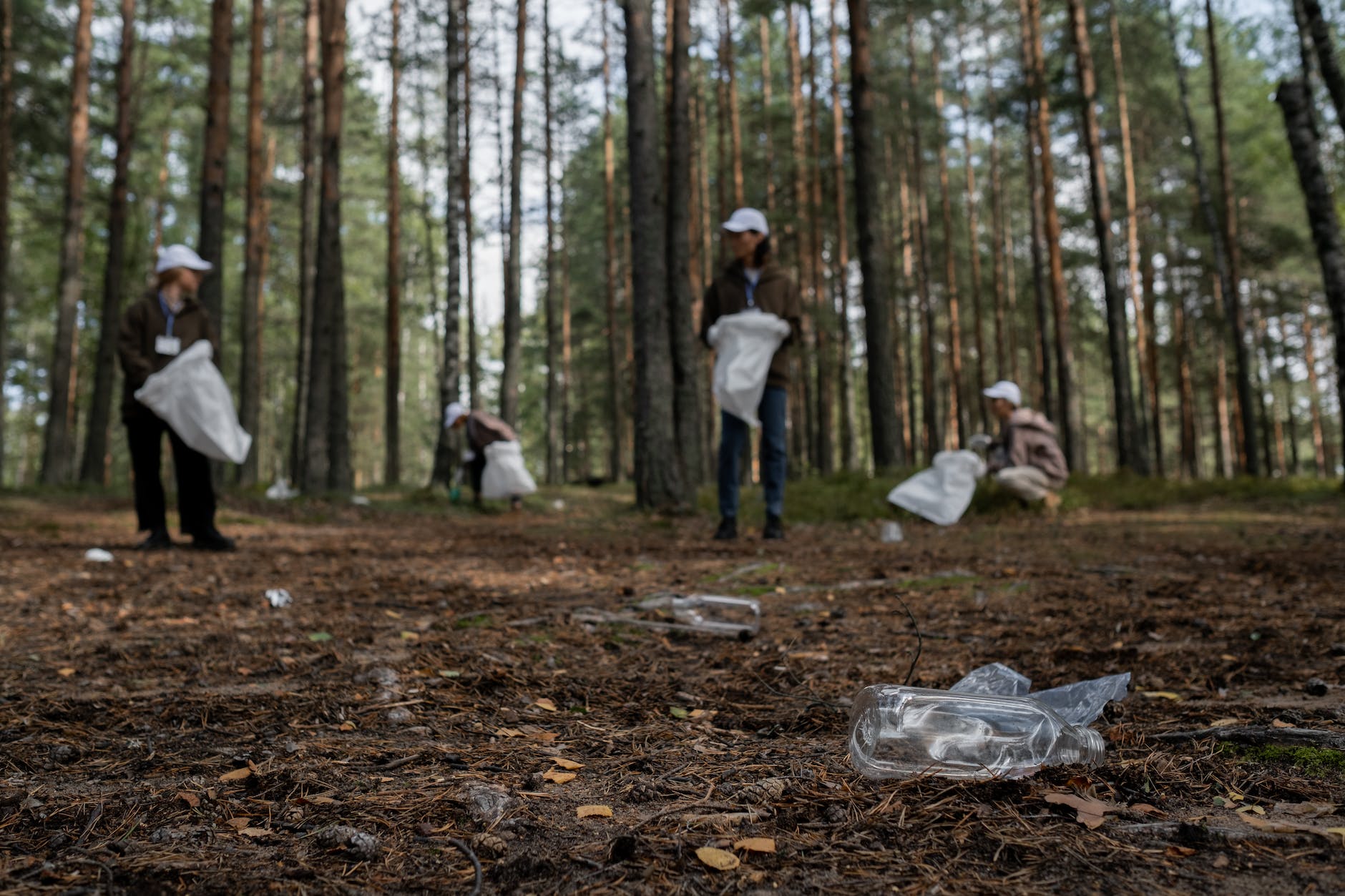
Keep the Trails Clean for All
Keeping trails clean is essential for several reasons:
- Environmental Preservation: Trails often pass through natural and sensitive ecosystems. Keeping them clean helps protect plants, animals, and their habitats from pollution, disturbance, and litter. It maintains the ecological balance and ensures that these areas remain pristine for future generations to enjoy.
- Preventing Pollution: Litter, chemicals, and waste left on trails can find their way into water sources, negatively impacting aquatic life and water quality. By keeping trails clean, we reduce the risk of pollution and its harmful effects on the environment.
- Preserving Aesthetics: Trash and debris on trails diminish the natural beauty and aesthetics of the area. Clean trails provide a more enjoyable and visually appealing experience for hikers, bikers, and other outdoor enthusiasts.
- Safety: Litter and obstacles on trails can pose safety hazards. Clean trails reduce the risk of accidents and injuries, ensuring a safer experience for all users.
- Respect for Nature: Keeping trails clean demonstrates a sense of respect for the environment, other visitors, and future generations. It promotes a culture of responsible outdoor recreation and fosters a deeper connection to nature.
- Wildlife Protection: Trash and improperly disposed food can attract wildlife, leading to negative interactions and habituation. Clean trails help maintain a healthy separation between humans and wildlife, reducing the potential for conflicts.
- Invasive Species Control: Unwanted seeds or plant material carried in by litter can introduce invasive species to new areas. By removing trash, we help prevent the spread of invasive plants that can harm native ecosystems.
- Positive Community Impact: Clean trails contribute to a positive community image and can attract more visitors, benefiting local economies through tourism and outdoor recreation.
- Educational Opportunities: Clean trails provide opportunities for educational programs and interpretation about the environment, ecology, and conservation. They serve as outdoor classrooms for learning about nature.
- Sustainable Recreation: Practicing Leave No Trace principles, which include cleaning up after yourself, helps ensure that outdoor areas remain accessible and enjoyable for everyone without causing undue harm to the environment.
Overall, keeping trails clean is a shared responsibility that helps preserve natural areas, enhances the outdoor experience, and promotes a sense of stewardship and sustainability for present and future generations.
The Jeep Creed
Finally, if you don’t know there is the Jeep Creed, it’s sort of a ‘bible’ about Jeeps and other Jeepers.
JEEPERS CREED
1. We befriend all other Jeepers, regardless of year, model, or build.
2. We help, assist, and aid all Jeepers wherever possible.
3. We never berate, harass, or put down other Jeepers due to lack of knowledge, personal choices in their Jeep, or trail skill level.
4. We love and respect all trails. Rock, Mud, Dirt, Water, Swamp, or Snow.
5 We don’t leave the trail without all present and or accounted for.
6. We give of ourselves, wherever possible, to instill our knowledge of this great way of life to the new generation of Jeepers.
7. We work together to police the trails, educating those that are ignorant, to preserve our rights of access from those that would take them from us and the new generation.
8. We pay our way, follow the rules, and are stewards of the outdoors within our communities.
9. We respect this great land and work to preserve it.
10. WE LIVE and LET LIVE. This applies to all living things.

